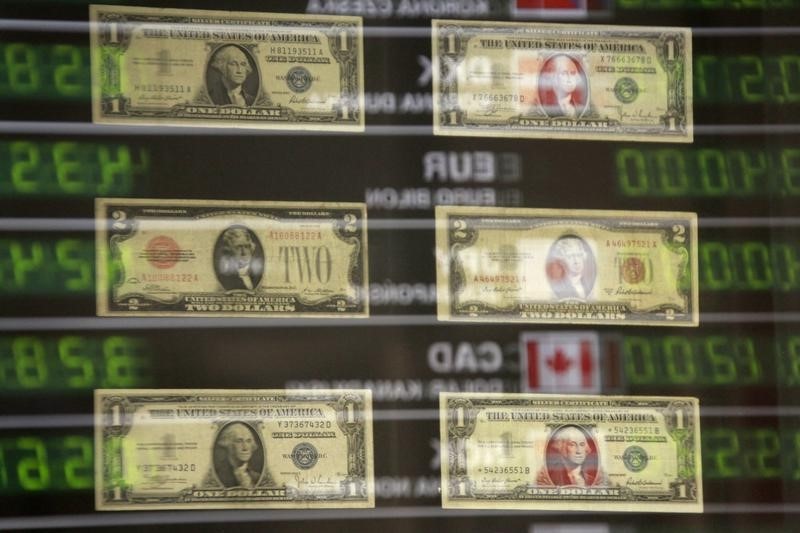(Adds comment, updates prices to close)
* Canadian dollar ends at C$1.3516, or 73.99 U.S. cents
* Loonie had hit strongest since April 19 at C$1.3410
* Bond prices lower across the yield curve
By Alastair Sharp
TORONTO, April 24 (Reuters) - The Canadian dollar ended weaker against its U.S. counterpart on Monday, with lower oil prices helping erase sharp gains after a French election result boosted investors' appetite for risk.
The loonie, as the Canadian currency CAD=D4 is colloquially known, settled at C$1.3516 to the greenback, or 73.99 U.S. cents, weaker than Friday's close of C$1.3503, or 73.91 U.S. cents.
That loss came even as the U.S. currency fell against a basket of currencies .DXY .
The Canadian dollar hit C$1.3410, its strongest level since April 19, in morning trade that also included the release of decent domestic data, but faded throughout the afternoon. It fell 1.3 percent last week.
"The market just can't seem to find a reason to like the Canadian dollar," said Adam Button, currency analyst at ForexLive in Montreal. "That speaks to unease about oil and (Bank of Canada Governor Stephen) Poloz's repeated warnings that the economy is not as strong as it appears."
Oil prices CLc1 LCOc1 slipped nearly 1 percent, extending last week's decline, as investors worried about whether OPEC will extend output cuts until the end of 2017 and as Russia indicated it can lift output if the deal on curbs lapses. O/R
Oil is a major Canadian export.
The central bank's Poloz said on Saturday he was happy that Ontario had brought in new measures to tackle the Toronto housing market, saying a foreign buyers tax should help dampen demand and impact the psychology of speculators. wholesale trade declined in February after four months of gains amid weakness in the household goods and food sectors, data from Statistics Canada showed. 0.2 percent decrease was not as steep as the 1.0 percent decline economists had forecast. Sales volumes fell 0.4 percent.
The loonie plunged against a surging euro and gained against the Japanese yen, caught up in the broader cross-currents as markets reacted to centrist Emmanuel Macron's win in the first round of voting for the French presidency, pitting him against far-right leader Marine Le Pen in a May 7 runoff.
That reduced the risk of another shock like 'Brexit,' Britain's impending exit from the European Union, that could weigh on the global economic outlook. government bond prices were lower across the yield curve as the French vote reduced demand for safe-haven government bonds. The two-year CA2YT=RR price fell 4.5 Canadian cents to yield 0.739 percent and the 10-year CA10YT=RR slipped 18 Canadian cents to yield 1.488 percent.
